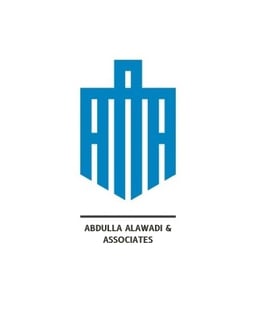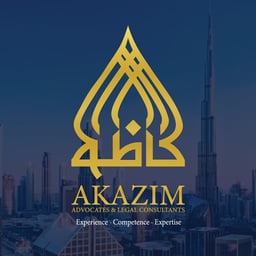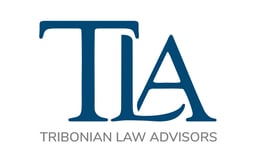
United Arab Emirates


Addleshaw Goddard

Afridi & Angell

Afridi & Angell Legal Consultants

Akazim Advocates & Legal Consultants

Akin

Al Mansoori & Partners
Al Naqbi & Partners (ANP)

Al Tamimi & Company

Alem & Associates

Alsuwaidi & Company

AMERELLER

Anjarwalla Collins & Haidermota (AC&H)

Ashurst

Ashurst LLP

Audiri Vox

Awatif Mohammad Shoqi Advocates & Legal Consultancy

Baker Botts L.L.P.

Baker McKenzie LLP

Beale & Company Solicitors LLP

Bin Sevan Advocates & Legal Consultants

Bird & Bird LLP

BonelliErede

Bracewell LLP

BSA LAW

Charles Russell Speechlys LLP

Cleary Gottlieb Steen & Hamilton

Clifford Chance

CMS

Curtis, Mallet-Prevost, Colt & Mosle LLP

D&C Legal Services

Dechert LLP

Dentons

Devine & Severova

DLA Piper
Fatma Al Mutawa Advocates and Legal Consultants

Fenwick Elliott LLP

Fichte & Co.

Gaillard Banifatemi Shelbaya Disputes

Galadari Advocates & Legal Consultants

GLA & Company

Global Advocacy and Legal Counsel

Greenberg Traurig Khalid Al-Thebity Law Firm

Habib Al Mulla & Partners

Hadef & Partners

Hadef & Partners LLC

HAS Law Firm

Herbert Smith Freehills Kramer LLP

HFW

Hogan Lovells (United Arab Emirates) LLP

Horizons & Co Law Firm LLC

Hourani & Partners

Hunton Andrews Kurth LLP

Ibrahim & Partners

Ibrahim N Partners

Ingmires Limited

Jones Day

K&L Gates

KARM Legal Consultants

KBH Limited

King & Spalding

Knightsbridge Group

Latham & Watkins LLP

Linklaters

LPA Law

Maples Group

Matouk Bassiouny UAE

Meysan Partners LLP

Morgan, Lewis & Bockius LLP

MRP Advisory LLC

NHB Legal

Norton Rose Fulbright

NYK Law Firm

Obeid & Medawar Law Firm LLP

Obeid & Partners

Ogier

Paul Hastings LLP

Prime Law Firm

Quinn Emanuel Urquhart & Sullivan, LLP

Ruthberg LLC

SAT & Co.

SCHLÜTER GRAF Legal Consultants

Simmons & Simmons Middle East LLP

Stephenson Harwood Middle East LLP

Tribonian Law Advisors

Trowers & Hamlins LLP

TWS Legal Consultants

Vinson & Elkins LLP

Walkers

Watson Farley & Williams

Webber Wentzel

White & Case LLP

William Fry LLP
Firms in the Spotlight

HAS Law Firm
With commitment to legal excellence and innovation, Hamdan AlShamsi Lawyer and Legal Consultants (HAS) is a full-service Dubai based law firm operating at international standards.
Acros

Awatif Mohammad Shoqi Advocates & Legal Consultancy
Our strong practice areas are family law, criminal law, civil law, corporate & commercial, banking, maritime & transport, labor, litigation, arbitration, and real estate. Our team of lawyers,

HAS Law Firm
Founded in 2010 by Hamdan Alshamsi expert UAE litigation practitioner, Hamdan Alshamsi lawyers & Legal Consultants (“HAS”) legal practice provides sector expertise at both local and international
Interviews
ViewAbubaker Karmustaji, Co-Founder & Head of Dispute Resolution Practice
SAT & Co.

Yasir Al Naqbi, Founding Partner
Al Naqbi & Partners (ANP)

Nita Maru, Managing Partner & Solicitor
TWS Legal Consultants

Sadiq Jafar, Managing Partner
Hadef & Partners

Kim Medina, Director of Legal and Compliance
Knightsbridge Group
Amer Obeid, Managing Partner
Obeid & Medawar Law Firm LLP
Galadari Advocates & Legal Consultant
Galadari Advocates & Legal Consultants

Jasmin Fichte, Managing Partner
Fichte & Co.

Mr. Hamdan Alshamsi, Senior partner & Founder
HAS Law Firm
Comparative Guides
ViewArtificial Intelligence
United Arab Emirates
Contribution fromAl Tamimi & Company
TMT
United Arab Emirates
Contribution fromKARM Legal Consultants
Shareholder Activism
United Arab Emirates
Contribution fromAmbition Legal Consultancy FZE
Litigation
United Arab Emirates
Contribution fromAttalah legal consultancy FZ-LLC
News & Developments
ViewCommercial, corporate and M&A
Joint ventures in Dubai: Where legal structure and actual control diverge
Joint ventures are a common way to enter the Dubai market, particularly in sectors where foreign ownership is restricted or local licensing is required. Most are structured either through a jointly owned company or a contract between independent parties.
Each approach has its own risks and legal implications, from who controls decisions to how disputes are handled and what happens if one side wants out. This article sets out the key structural choices, where issues tend to arise, and what should be in place from the start.
Start with the right structure
Most UAE joint ventures fall into two categories: incorporated or contractual. Each carries different risks, especially when third-party liability or licensing is involved.
An incorporated JV, usually set up as an LLC, creates a separate legal entity. The company signs contracts in its own name, holds assets, and limits the personal liability of its shareholders. This setup works better for longer-term ventures, regulated activities, or where a standalone licence is required.
A contractual JV avoids incorporation. The parties remain independent and operate under a commercial agreement that sets out who does what and how profits or losses are shared. These are often used for one-off projects or when licensing and cost constraints make a separate company impractical.
Liability and enforcement differ too. An incorporated JV can enter contracts and bring claims in its own name. In a contractual setup, enforcement rights depend on how responsibilities are allocated and who holds legal standing.
Control and equity rarely match exactly
In sectors with foreign ownership limits, legal shareholding and day-to-day control are often split. A local partner might hold 51% on paper but take no active role. In other cases, the party making key decisions may not appear in the official filings at all.
These gaps need to be managed clearly from the start. The joint venture agreement should spell out who is responsible for operations, who controls spending, and how decisions are made. These terms should match what appears in the trade licence and constitutional documents. If they differ, the official record usually takes precedence in court.
Side agreements or nominee arrangements are sometimes used to reflect the real balance of control. Whether they hold up depends on how they’re written, how well they’re supported by the documents, and the forum in which they’re tested. In the UAE, offshore nominee agreements that contradict local filings or conceal effective control often carry less weight.
Defining exit and deadlock procedures
Well-drafted joint ventures set out how each party can exit and what happens if decisions cannot be reached. This includes clear procedures for buyouts, valuation, and fallback steps when agreement is not possible.
Exit clauses should define when a party can leave, how the valuation is handled, who oversees it, and how the transaction is completed. The process should work even if one side does not cooperate.
Deadlock provisions need to go beyond general intent. The agreement should lay out what happens if board or shareholder decisions cannot move forward. Common solutions include third-party mediation, external valuation, or structured buy-sell mechanisms.
Avoid open-ended terms. Language like “mutual agreement” or “best efforts” often lacks enforceability. More useful are practical, time-bound steps that provide a path forward when formal consensus breaks down.
Licensing, governance and director risk
Joint ventures that operate in regulated sectors, such as healthcare, education, media or financial services, often need approvals beyond the trade licence. These can include activity-specific permits, federal clearances, or local authority sign-offs. If these are missed, the company may not be allowed to operate as intended.
Director appointments also carry specific legal weight. Under UAE law, board members are personally liable for company conduct. Even if a director acts on instruction from a partner, liability still rests with the named individual. That includes nominee directors or informal representatives once their names appear on public records.
Regulatory filings such as UBO declarations, economic substance reports and real ownership registers now make it harder to separate formal records from real control. If agreements or internal practices do not align with what’s filed, those differences typically surface during compliance reviews, renewals, or legal proceedings.
To reduce exposure, governance terms, decision rights and public records all need to match. Any gap between them creates risk, especially when one party holds influence without accountability.
Disputes, enforcement and forum choice
Disputes often stem from mismatched expectations around control, capital and decision rights. One party funds the venture, the other handles operations, and the agreement never clearly sets out who decides what. Deadlock provisions, quorum rules and veto rights are either missing or vague. That’s when deals stall.
Most joint venture agreements refer to arbitration which is usually DIAC or the ADGM Arbitration Centre. But urgent issues like asset freezes, account access or injunctions still depend on action through the Dubai Courts. If a partner moves funds or blocks a key decision, court intervention is often the only real option.
To enforce rights quickly, the agreement must do more than name a forum. It should set out what triggers action, who can act, what evidence needs to be produced, and how each party secures standing. Delays often come down to gaps in how roles were recorded or who is officially recognised to represent the company.
Forum choice only works if the practical steps like timing, filings and access have been built into the structure from the start.
How The Knightsbridge Group can help
The Knightsbridge Group has over 20 years of experience advising on joint ventures and corporate structuring across the UAE. We help founders, shareholders and legal teams put clear agreements in place, align decision-making with regulatory requirements, and plan for control, exit and enforcement from the outset.
Whether you're setting up a new venture, taking on a local partner, or reviewing an existing arrangement, we provide practical, sector-specific advice backed by deep regulatory and licensing insight.
To speak with an expert, contact us at [email protected].
Knightsbridge Group - September 1 2025
Family Law
A Comparative Analysis of the New Family Law with Old Family Law
The new personal status law under Federal Decree Law No. 41 of 2024 (“New Law”) has been enforced in the UAE since April 15, 2025 and the old family law under Federal decree Law No. 28 of 2005 (“Old Law”) is now officially abrogated. The New Law has brought in significant changes to the areas of marriage, divorce, child custody and alimony. This article offers a comprehensive study of the changes in the New Law:
General changes
1. All time periods to be calculated as per the Gregorian calendar
Article 2 of the New Law states that all time periods will be calculated as per the Gregorian calendar. The Old Law followed the lunar calendar. But now, age of majority for marriage, child custody and legal capacity will be determined as per the Gregorian calendar.
2. Choice of Applicable Law
As per the Old Law, parties were allowed to apply the personal laws of their home country in family matters. After the Old Law underwent an amendment, it allowed the laws of the place of marriage, to be a choice of law that can be applied in family matters.
The new Law under Article 1(2) states that parties can mutually determine which law is to be applied in the case.
3. Submission to family guidance
The Old Law required the submission of family cases for mediation, to the family guidance department, before the case was to be presented before the judge, However, the New Law under Article 8 states that family cases will be reviewed by the court which will then decide whether the case can benefit from mediation. Only if the court decides to refer the case to mediation will the case be referred to the family guidance department.
Changes in regulations around Marriage
1. Engagements Gifts
As per Articles 13 and 14, gifts given as part of the dowry, and gifts exceeding the value of AED 25,000 must be returned in case the engagement is discontinued. However, perishable or consumable items and gifts valued less than AED 25,000 need not be returned in the event of the breakdown of the engagement.
2. Void Marriage in case of large difference in age between the parties
As per Article 19 of the New Law, in case of an unmarried woman, the age difference between herself and her future husband must not exceed 30 years.
3. Proof of lineage
Under the Old Law, children born in a marriage that was null and void were not given the right of lineage. However, the New Law grants these children the right of lineage even if the marriage is null and void.
Changes in the process of Divorce
1. Usage of drugs, alcohol and psychotropic substances as a ground for divorce
Article 80 of the New Law states that the usage of alcohol, drugs and psychotropic substances is a ground for divorce. Although this reason was used to obtain a divorce prior to the enactment of the New Law, it was not part of the Old Law. Rather, it was recognised as a ground for divorce by judicial precedent. However, after the issuance of the New Law, substance abuse is now a ground for divorce as per law.
2. Divorce due to illnesses
Medical issues that prevent the continuation of marital relations continue to be a ground for divorce as was the case under the Old Law. However, the New Law alters certain conditions required for such a divorce. As per Article 69 of the New Law, if a person seeks divorce under this ground, the court may appoint an expert to determine the conditions of the illness and also provide a grace period of one year for medical treatment before granting the divorce.
3. Divorce due to abandonment
The provisions relating to the ground for divorce due to abandonment of the spouse have also undergone changes. Under the old law, a person could seek divorce in case of abandonment by the spouse for more than a year. However, the New Law under Article 79(1) has decreased this period to six months. However, after a woman has been abandoned for six months, she must give the husband a six-month notice period to either move back to the marital house, or enable the wife to relocate to the husband’s new residence.
4. Divorce due to detention
Detention of the spouse is another legal ground for divorce under the Old and New Law wherein a wife may apply for divorce if the husband has been granted a minimum of three years of imprisonment and he has already served one year of his prison sentence. However, Article 79(3) of the New Law imposes two new conditions. One is that the husband should not get out of prison during the case, and the other is that the time left for his imprisonment sentence should not be less than six months.
5. Changes in Khula provisions
As per Article 68 of the New Law, if khula has been invoked between a couple, it must be registered in the court of law within 15 days. Any interested party may prove this by any means of proof before the court.
Changes in laws regarding Child Custody
1. Age of custody
One the most significant changes brought in by the New Law is the change in age of custody. Under the Old Law, after a divorce, the mother was given custody of children until the son attained 11 years and the daughter attained 13 years. However, Article 123 of the New Law has increased this age of custody to 18, regardless of the gender of the children.
2. Children’s right to choose
The New Law also grants children the right to choose between their parents under Article 122 once they attain 15 years, provided the court does not determine that the children’s decision is against their best interest.
3. Educational guardianship
As per Article 112 of the New Law, the educational guardianship of a minor child will be held by the mother. However, if the mother is not an efficient guardian, an application can be made to the Urgent Matters Court to grant the guardianship to an eligible person.
4. Implied consent
Under the Old Law, if a person were to seek custody of a child due to changes in circumstances that made the current custodian ineligible, they were to do so within 6 months of first learning of such change in circumstances. However, the New Law under Article 115 has increased this time period to one year, granting individuals more time to initiate the legal process.
5. Right of the mother to custody under certain circumstances
Article 120 of the New Law states that a mother does not automatically lose her right to custody over her children even if she abandoned her marital house. Furthermore, Article 113 states that a non-Muslim mother will have the right to retain custody over her children, even beyond the age of 5, as per the discretion of the court.
6. Possession of children’s document
Under Article 117 of the New Law, the father of the child will have the right to hold the passport of the children while the mother will have the right to hold the identification document of the children as was the case under the Old Law. However, as per Article 124, the guardian can take custody of the identification documents from the custodian mother, if it is found that the mother has misused the documents. Articles 251 and 252 further states that refusal by a parent to handover the documents as per the law or misuse of the document for personal purposes will result in penalties and/or imprisonment.
Changes in Laws regarding Maintenance and Alimony
1. Backdated expenses reduced to two years
Although the Old Law allowed one to seek backdated expenses for the previous three years, the New Law under Article 99 has reduced this time period to 2 years.
2. Family support not restricted to monetary payments
Article 96 of the New Law states that family support does not have to be in the form of money, but can also include other types of contributions.
3. Request for increased maintenance
The Old Law allowed women to request an increase in the maintenance provided, after the expiry of one year from the previous order. Under Article 97 of the New Law states that the request for increased maintenance shall take retroactive effect and apply from the previous six months.
4. Rights over jointly owned property
Article 105 of the New Law states that properties that are jointly owned by spouses cannot be rented or allowed to be used by a third party regardless of whether they are a relative of the couple, except with the consent of both owners of the property.
5. Extinguishing the wife’s right to Maintenance
Under the Old Law, a wife would lose her right to maintenance if she abandoned her marital house or if she denied her husband his conjugal rights. The New Law under Article 103 states that along with the above scenarios, a wife will lose her right to maintenance if she refuses to travel with her husband without any justification.
6. Maintenance of the daughter
Earlier, it was the father’s duty to provide maintenance for the daughter until she is married, and in case she is divorced or widowed. The New Law under Article 106 states that the father is not required to provide for the daughter if she starts working in these circumstances, as she now has a source of income to maintain herself.
7. Family support to take precedence over other debts
The New Law distinguishes family support into two categories: a) continuous maintenance that go towards the current daily expenses of the family, and b) backdated expenses that is a debt that requires repayment. Consequently, in case a man becomes bankrupt, the continuous maintenance will be classified as a priority debt under Article 98 of the New Law that has precedence over other types of debts owed by the man, while the payment of backdated expenses is considered to be a normal debt.
Awatif Mohammad Shoqi Advocates & Legal Consultancy - September 1 2025
Family Law
‘Break Up’ to ‘Pay Up’: Child Support and Alimony Under UAE Law
The UAE law states that after a divorce, the father is obligated to provide child support for his children, under both Muslim law and non-Muslim law. Similarly, the husband may be ordered by the court to make payments to the wife in the form of alimony, unpaid maintenance, compensation, etc.
Although these court ordered payments are compulsory, there may be instances where the payments are not carried out by the husband. In this article, we will understand the steps that will be undertaken by the court to ensure that court ordered child support and maintenance payments are made by the father.
What are the various heads under which child support payment is ordered by the court?
The UAE family law for Muslims clearly lists out the heads under which the father is to provide child support for his children before and after a divorce. Article 95 of Federal Decree Law No. 41 of 2024 (“Personal Status Law”) states that maintenance includes basic necessities such as food, clothing, shelter, medical care, and education. Consequently, in child support disputes, courts may order fathers to pay towards general expenses like food and clothing categorized as child support. Additionally, the court may also order payment of the rent for the house occupied by the children, tuition fees, transportation expenses, and health insurance. Furthermore, courts may also order the father to bear the expenses for domestic help if there is proven necessity for the same.
What are the various heads under which the wife receives alimony from the husband after a divorce?
Under Article 99 of the Personal Status Law, it is obligatory for the husband to provide for maintenance of the wife during the course of their marriage. This maintenance includes all the basic necessities under Article 95. However, this obligation ends with the dissolution of the marriage contract. Nevertheless, the court may order payment to the wife under various heads as listed below:
a) Payment of backdated expenses for up to two years under Article 99(3): if the husband has not provided for the wife during the course of their marriage, the court may order the husband to pay the backdated expenses for up to two years. It is pertinent to note that a woman may be disqualified from receiving maintenance under ‘backdated expenses’ as per Article 103 of the Personal Status Law if it is proven that she refused to carry out her marital duties towards her husband.
b) Payment of alimony and housing for the waiting period under Article 101: the court may order the husband to pay a rental allowance and maintenance for the waiting period depending on the type of divorce and whether the wife is pregnant.
c) Payment of divorce compensation under Article 102: the husband may be ordered to pay compensation to the wife if the marriage was consummated and the divorce is at the sole discretion of the husband and without any request or fault from the wife.
d) Temporary Alimony: The court may also order the payment of temporary alimony for the maintenance of the wife and children during the course of the divorce proceedings.
Child support and Maintenance Under non-Muslim Laws
The non-Muslim family laws, namely Federal Decree Law No. 41 of 2022 (“Civil Status Law”) and Abu Dhabi Law No. 14 of 2021 (“Abu Dhabi Law”), are based on common law principles such as equality between genders and equal custody rights over children. Therefore, husbands and wives have equal responsibilities towards each other and towards their children. Nevertheless, if the wife is unable to support the children, the court may order the husband to provide maintenance for the children in the form of child support. The court may also order the husband to pay alimony after a divorce, after determining the following factors:
The duration of marriage
The age of the wife
The financial status of the parties
The contribution of each party towards the decision for divorce
Moral or financial damages caused by either party
Custody expenses for up to two years after a divorce
Diligence of the wife in her role as the mother of the children
Bridging the gap between Court Judgements and enforcement
The Execution Department of the Personal Status Courts deals with the execution of judgments in family matters. When a party seeks to enforce a personal status court judgment, then they need to register an execution case before the Execution Court. Once an execution case is opened, the court notifies the husband to make payment as per the court notification within the specified period mentioned in the notice. In case of non-payment of child support and alimony by the husband, the execution applicant, who is the party enforcing the judgment, may request the Execution Court to attach and transfer funds based on investigation through central bank investigation and attachment of the husband’s file to block any transaction with the departments such as road transport authority, land department, and economic department, request for a travel ban on the husband, and also an arrest warrant can be issued if the judgement is not complied with.
Author: Dr. Hassan Elhais
Awatif Mohammad Shoqi Advocates & Legal Consultancy - September 1 2025
Dispute Resolution: Arbitration
Navigating the Pitfalls of Arbitration in the UAE
Introduction
While the UAE has positioned itself as a global arbitration hub, conducting arbitration there can be a minefield, especially for foreign parties unfamiliar with the nuances of its legal landscape.
The UAE's arbitration landscape is characterised by several distinct regimes. Arbitrations seated in the Dubai International Financial Centre (DIFC) and Abu Dhabi Global Market (ADGM) are governed by offshore legal regimes. These two special economic zones have their own arbitration laws and regulations, which are largely similar to English common law principles. In contrast, the onshore legal regime applies to arbitrations seated elsewhere in the UAE.
Parties unfamiliar with this segmented system often do not fully appreciate the nuances and potential pitfalls associated with each arbitration regime. The offshore regimes are generally perceived as more arbitration-friendly due to their common law heritage and specialised judiciary, and the onshore regime is often viewed as more challenging by international practitioners.
While Article 20 of the Dubai Internation Arbitration Centre (DIAC) Rules 2022 and Article 22 provide for the default seat to be in the offshore legal regimes (DIFC and ADGM respectively), many arbitration agreements provide for the seat in the onshore UAE.
This publication aims to highlight potential pitfalls of the onshore arbitration regime from the perspective of an international arbitration practitioner or in-house counsel. It may be particularly useful during the early stages of a dispute for forming an initial opinion about potential challenges or when drafting dispute resolution clauses, particularly concerning the selection of the seat of arbitration. The same pitfalls may be relevant when a foreign arbitral award (including one issued in the DIFC or ADGM seated arbitration) needs to be recognised and enforced in onshore UAE.
Judicial System, Mindset, and Interpretation
The onshore UAE operates under a civil law system, while international commercial arbitration largely stems from common law traditions. This fundamental difference can lead to variations in judicial interpretation, even for laws based on the UNCITRAL Model Law. The absence of binding judicial precedents further contributes to less predictable outcomes compared to common law systems. Many judges and practitioners also retain a traditional civil law view of court supremacy over arbitration, considering arbitration an "exceptional" method of dispute resolution. This often results in a more rigid and less arbitration-friendly interpretation of legal provisions than seen in common law jurisdictions. Collectively, these factors can lead to unexpected annulment decisions or challenges during enforcement.
Specific Authority for Arbitration Agreements
A significant requirement in onshore UAE arbitration is that an individual entering into an arbitration agreement on behalf of a company must possess specific authority to do so. Typically, this necessitates a shareholders' resolution or an express grant of authority within the articles of association. Concepts of apparent authority and implied authority are generally not recognised in onshore-seated arbitrations, as opposed to offshore-seated arbitrations. The practical implication is that a company may claim an arbitration agreement is not binding if the signatory lacked this specific authority, even if it was a director or top executive who signed it, and the company participated in the arbitration. For example, the Abu Dhabi Court of Cassation recently set aside an award because the agreement containing an arbitration clause was signed by the company CEO, whereas the company articles of association authorised the Chairman of the Board of Directors to enter into arbitration agreements. The company’s participation in the arbitration and failure to object did not constitute a waiver of its right to invoke invalidity of the arbitration clause (Case No. 902 of 2024).
Arbitration Agreement Incorporated by Reference
UAE courts typically require that the document containing an arbitration clause be signed by the parties, even though this is not explicitly mandated by law. This requirement can raise questions about the validity of an arbitration agreement when a contract incorporates an arbitration clause by reference to another document, such as terms and conditions.
Formalities
Non-compliance with formalities can lead to the invalidation of an arbitral award. For example, although Article 41(3) of the UAE Arbitration Law simply states that "the award shall be signed by the arbitrators," UAE courts have interpreted this to mean that the award must be signed by the tribunal on every page containing the reasoning and dispositive section. The best practice, therefore, is to sign every page of the award to ensure compliance and avoid potential disputes. While certain exceptions exist, they have been interpreted very restrictively. A failure to comply with this signature requirement has been deemed a violation of UAE public policy, which is a ground for setting aside an arbitral award under Article 53(2)(b) of the UAE Arbitration Law.
Public Order or Morals
The extent of judicial scrutiny of arbitral awards in the UAE at the enforcement stage may sometimes be rather wide, occasionally delving into the merits or re-evaluating factual findings of an award. In particular, the concept of public order or morals has been interpreted widely. A UAE court may, on its own initiative, set aside an award on this basis.
Unrecoverable Legal Costs
Legal costs are largely not recoverable in onshore litigation in the UAE. It seems this practice has influenced the UAE courts in their approach to legal costs in arbitration, even when an arbitral award orders payment of legal costs. For example, the Dubai Court of Cassation confirmed the partial annulment of an ICC award in the part which concerns the allocation of legal costs (Case No 821 and 857 of 2023). The court reasoned that the costs of arbitration, as defined by the UAE Arbitration Law (Federal Law 6/2018), do not include legal costs paid by the parties to their legal representatives. It held that the parties' arbitration agreement did not explicitly include an agreement on holding either party liable for legal expenses or authorising the arbitral tribunal to determine them. Consequently, the relevant part of the award was annulled, and the award debtor was not obligated to pay legal costs of the opponent. This intervention was surprising and unexpected, given that the ICC arbitration rules, which were incorporated into the parties' agreement, expressly defined arbitration costs to include legal and other costs incurred by the parties.
On the other hand, the Dubai Court of Cassation held recently that a party may recover the full amount of legal fees in onshore litigation (Judgment No. 503/2025). It remains to be seen whether this judgment has created a uniform general rule on recoverability of legal costs.
Confidentiality
Established common law arbitration hubs prioritise the preservation of arbitration confidentiality, often through anonymisation, redaction, and private hearings for arbitration-related court matters. In the UAE, while the confidentiality of the arbitration itself is recognised, the default is that any court case pertaining to an arbitral award will be heard publicly, like any other case. The burden rests heavily on the party to persuade the court to grant exceptional privacy measures for related judgments, which are not routinely granted. This implies a higher likelihood of case details becoming public.
Interim Measures
While the UAE federal arbitration law permits tribunals to issue interim measures and allows for court assistance, the scope and speed of obtaining certain types of injunctive relief from onshore UAE courts can be more limited or slower compared to common law arbitration hubs. For example, relief such as worldwide freezing orders, asset disclosure orders, specific performance orders, pre-action document disclosure orders, perpetuation of evidence orders, and anti-suit injunctions are either not available, difficult to obtain, or limited in scope. Regarding anti-suit injunctions, the Dubai Court of Cassation recently held that an arbitral tribunal possesses the authority to issue such injunctions (Appeal No. 657 of 2025, 3 July 2025); however, the consistent application of this principle by lower courts will need to be observed over time.
Arbitrability of Disputes
Certain types of disputes are considered non-arbitrable in the onshore UAE due to public policy. The scope and depth of such disputes are generally broader than in common law arbitration hubs. For instance, commercial agency disputes, particularly those registered under the UAE Commercial Agencies Law, have been considered non-arbitrable or subject to specific jurisdictional requirements due to their perceived public policy implications. Further, a wide range of bankruptcy-related issues are non-arbitrable.
Unilateral Arbitration Clauses
A unilateral (also known as optional or asymmetric) arbitration clause grants one party the right to choose between arbitration and litigation, while confining the other party to a single forum. The Dubai Court of Cassation has held that such clauses do not constitute a binding arbitration agreement under UAE law (Commercial Appeal No. 735 of 2024, 29 October 2024).
Less Predictable Court Decisions
Although the UAE continues to evolve into a more arbitration-friendly jurisdiction, court decisions often remain less predictable than in more established jurisdictions, especially concerning legal concepts with limited or no prior judgments. For instance, the inconsistent rulings on unilateral arbitration clauses highlight this unpredictability. Shortly before the case on unilateral arbitration clauses mentioned above, the same Dubai Court of Cassation rendered another judgment upholding a unilateral arbitration clause (Dubai Court of Cassation Commercial Appeal No. 1522/2023).
Sudden Changes in Law
Laws and regulations are frequently enacted without prior public discussion and with little to no advance notice. Furthermore, these laws often lack detailed provisions, making their application difficult, unpredictable, and sometimes impossible. A notable example is Decree 34/2021, issued on 20 September 2021, which abolished the DIFC-LCIA and Emirates Maritime Arbitration Centre (EMAC) with immediate effect, taking all legal community by surprise. Although the Decree provided for the transfer of cases and assets to DIAC, no specific mechanism for this transfer was prescribed, leading to many cases being in limbo for months.
Language Barrier and Translation
While arbitration proceedings can be conducted in English or any other agreed language, interactions with the onshore UAE courts — such as for interim measures, arbitrator appointments, or, crucially, for the ratification, annulment, and enforcement of awards — require documents to be translated into Arabic by a sworn legal translator. This not only adds time and cost but also frequently results in inaccurate translations, as some terms may be difficult or nearly impossible to translate correctly due to linguistic differences. This can result in the loss of nuances and misinterpretation, potentially leading to an unexpected or unfavourable court decision. Alternatively, if a translation error is identified by the opposing party, this may serve as grounds for challenges.
Conclusion
For in-house counsel and international practitioners, understanding these jurisdictional nuances is essential. A strategic choice of seat, robust arbitration clauses, and awareness of procedural quirks can significantly reduce the risk of unenforceability, delay, costs and other issues.
Arthur Dedels, Senior Associate, Fichte & Co
Fichte & Co. - August 29 2025